Sale 2576 - Lot 39
Additional Images
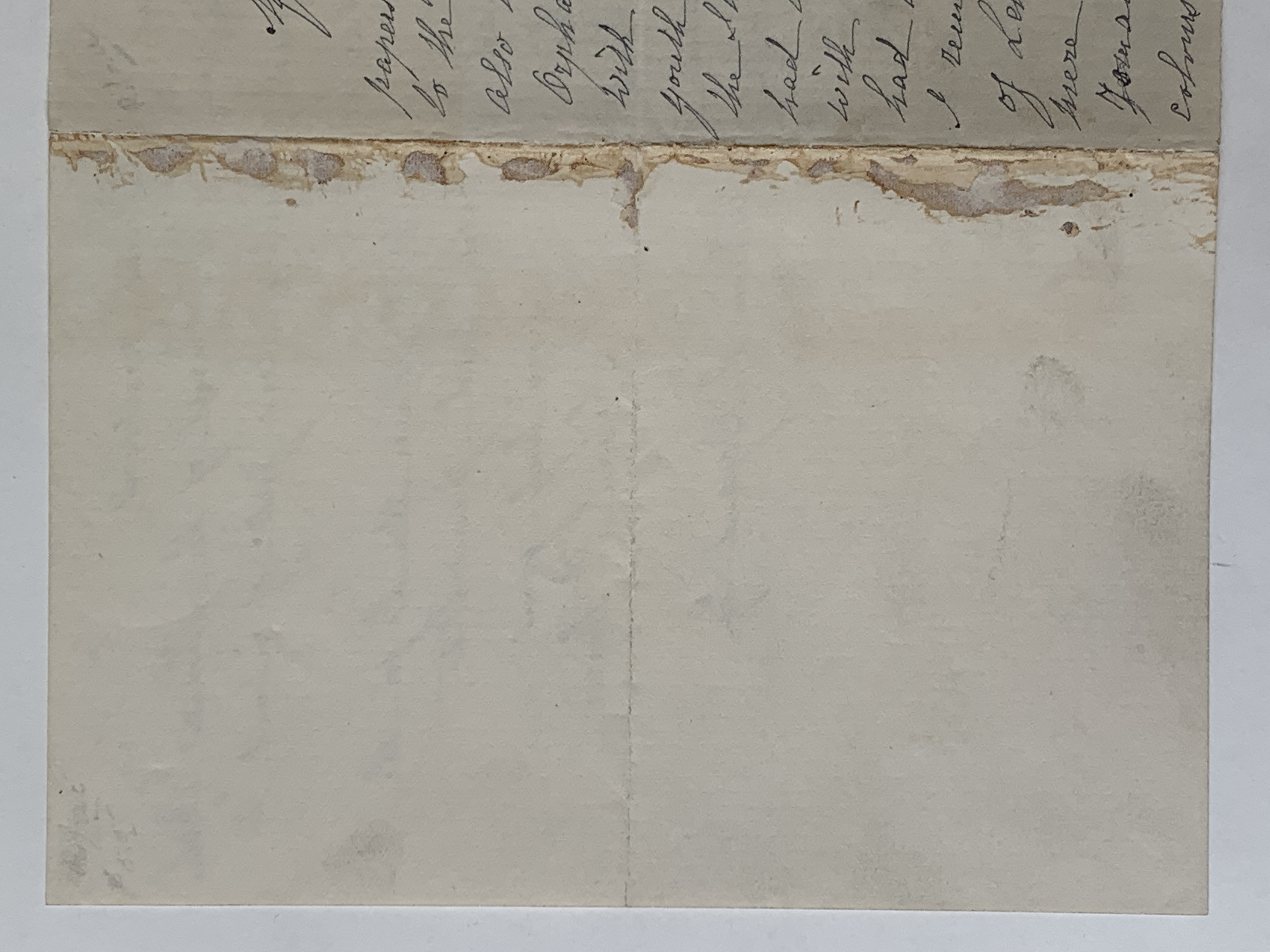
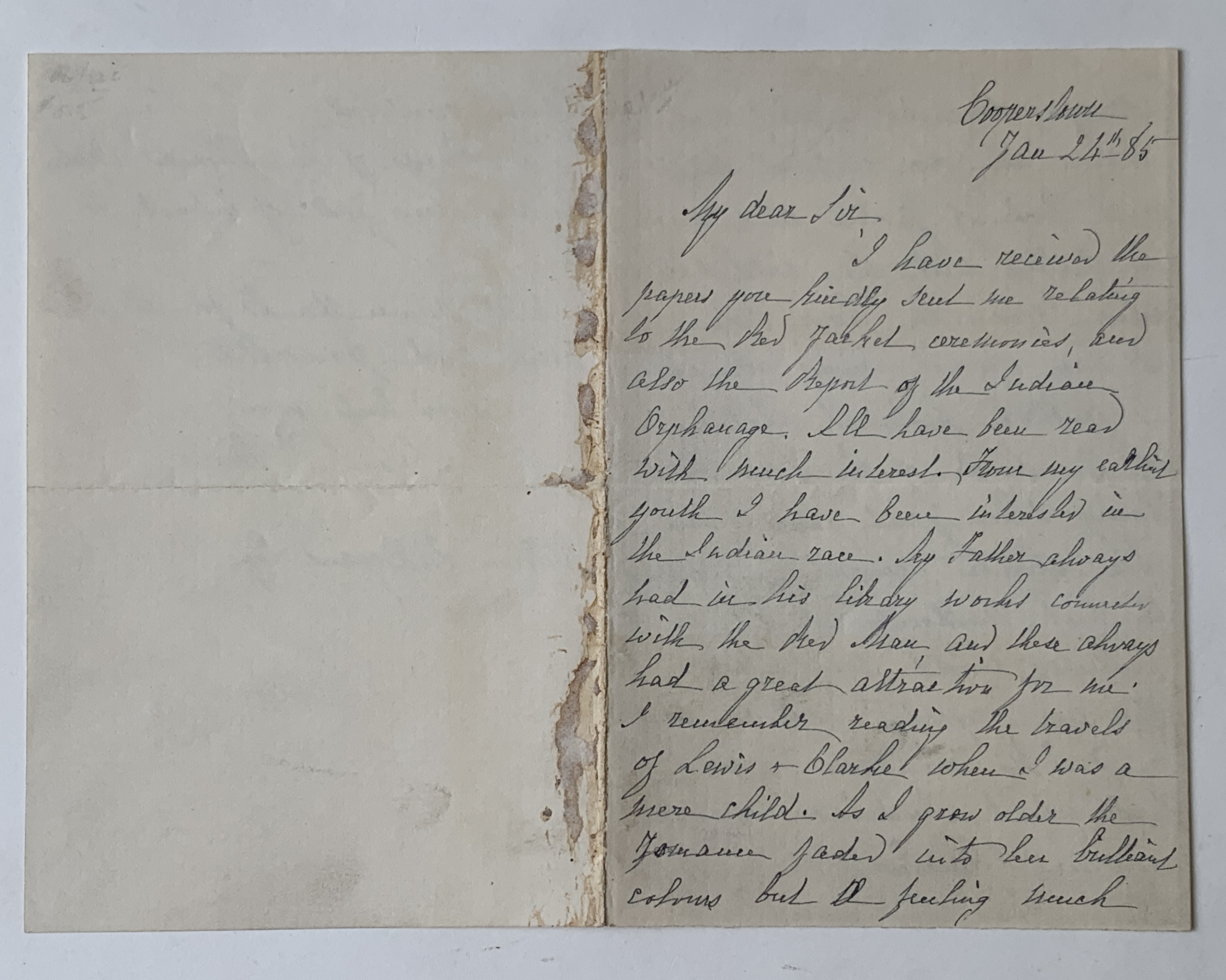
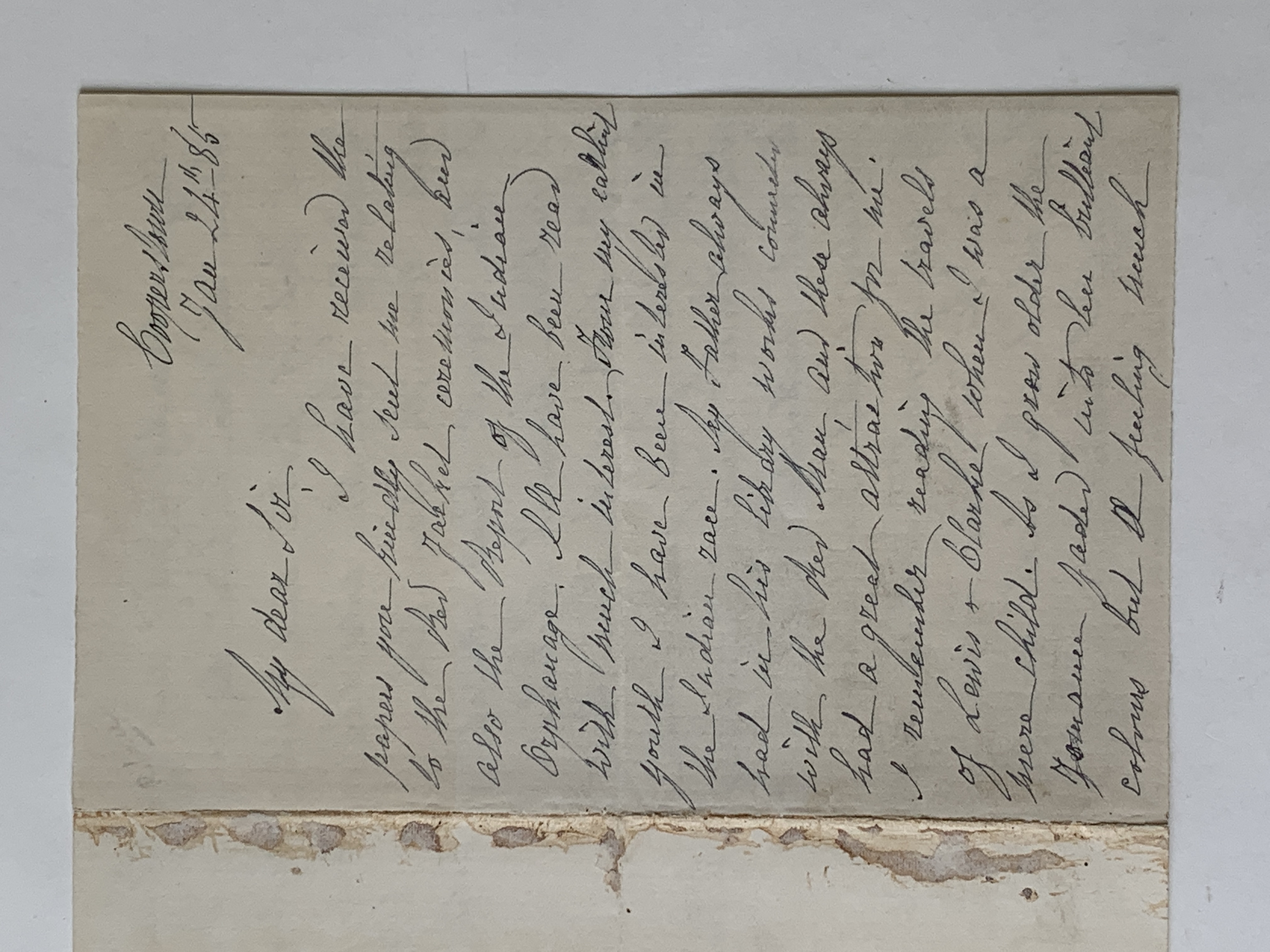
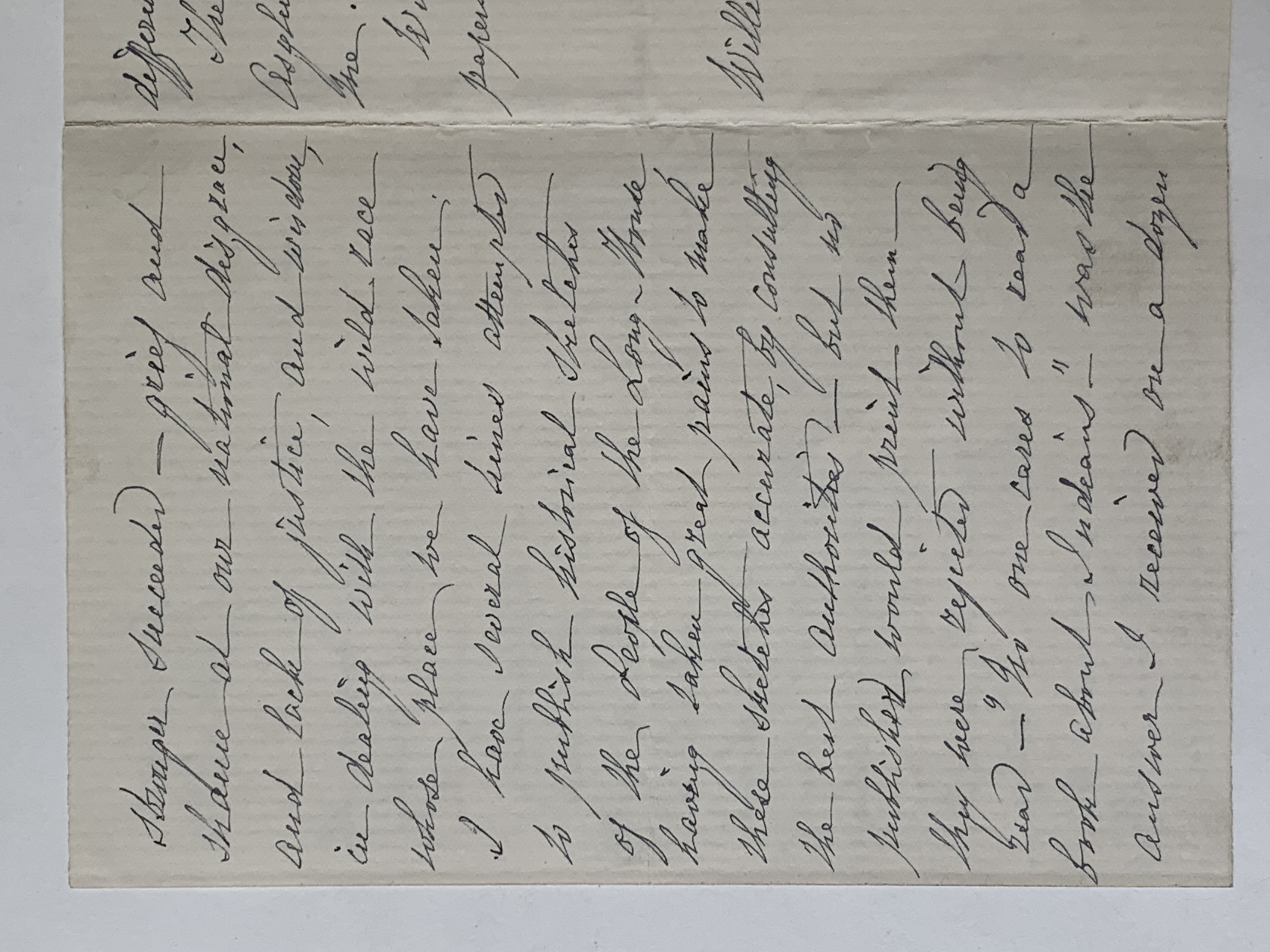
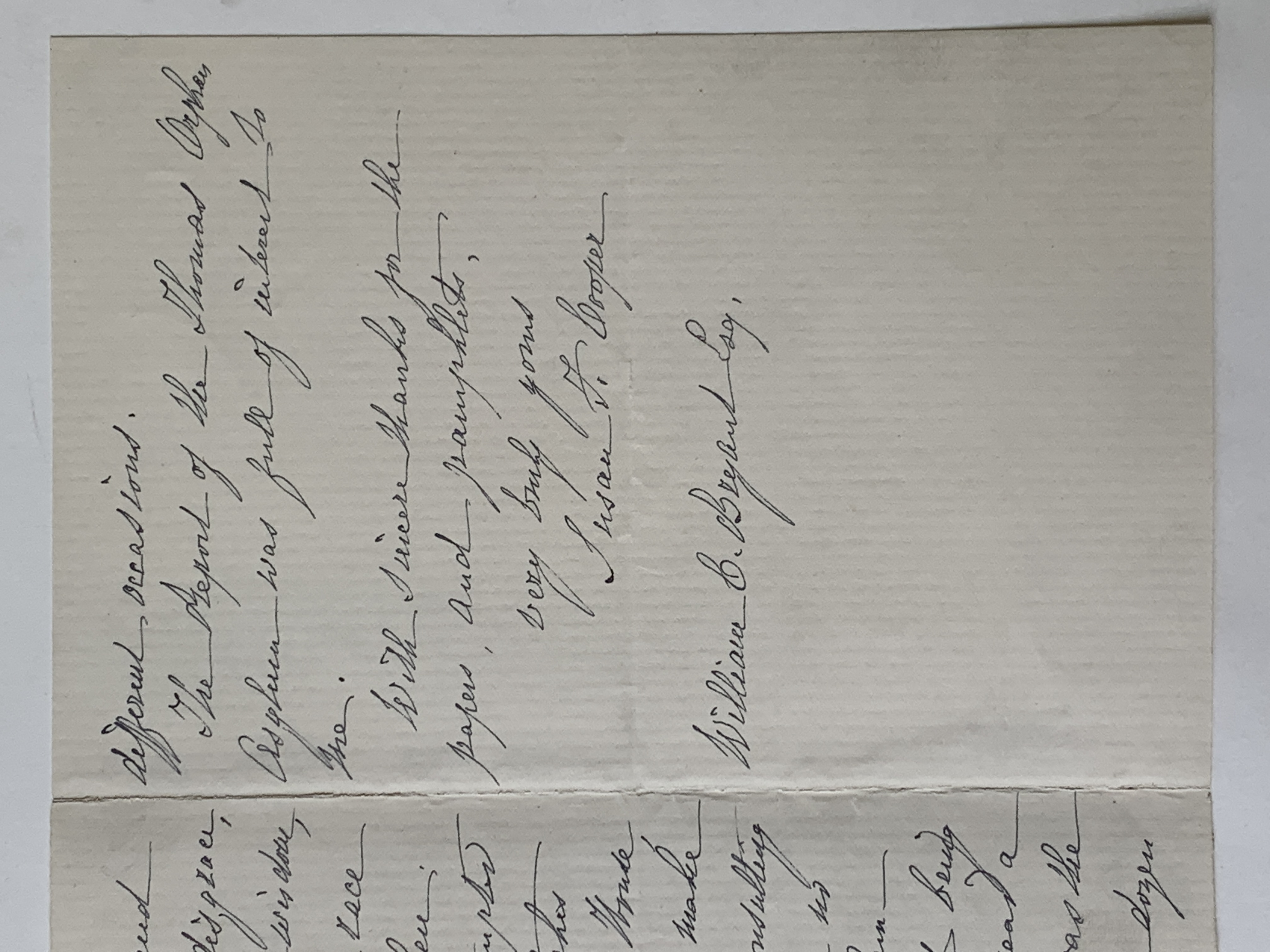
5





Sale 2576 - Lot 39
Estimate: $ 300 - $ 500
Cooper, Susan Fenimore (1813-1894)
Autograph Letter Signed, 24 January 1885.
Single laid bifolium inscribed over two and a half pages to William Cullen Bryant (1794-1878) regarding some reading material that Bryant sent, including a description of something Cooper calls "the Red Jacket ceremonies," likely a transcript of Red Jacket's (c. 1758-1830) oration to the Senate delivered in 1805 and reprinted in The World's Famous Orations, edited by Bryant; neatly written, signed in full, some adhesions from an old mount on blank verso, 6 x 4 in.
Cooper states that her father, James Fenimore Cooper, "always had in his library works connected with the Red Man, and these always had a great attraction for me." She notes, "As I grew older [...] a feeling much stronger succeeded, grief and shame at our national disgrace, and lack of justice, and wisdom in dealing with the wild race whose place we have taken."
Cooper was an accomplished artist, published naturalist, writer, and illustrator. In the present letter, she writes the following. "I have several times attempted to publish historical sketches of the People of the Long-House, having taken great pains to make these sketches accurate by consulting the best authorities, but no publisher would print them. They were rejected without being read. 'No one cares to read a book about Indians' was the answer I received on a dozen different occasions."
Thoreau praises Cooper's 1850 work, Rural Hours, in his journal. Modern scholars have suggested that some very memorable passages from Walden were likely inspired, suggested, or perhaps borrowed directly from Cooper's earlier work. (cf. Johnson, Rochelle, and Daniel Patterson, eds. Susan Fenimore Cooper: New Essays on Rural Hours and Other Works. Athens: University of Georgia Press, 2001.)
Autograph Letter Signed, 24 January 1885.
Single laid bifolium inscribed over two and a half pages to William Cullen Bryant (1794-1878) regarding some reading material that Bryant sent, including a description of something Cooper calls "the Red Jacket ceremonies," likely a transcript of Red Jacket's (c. 1758-1830) oration to the Senate delivered in 1805 and reprinted in The World's Famous Orations, edited by Bryant; neatly written, signed in full, some adhesions from an old mount on blank verso, 6 x 4 in.
Cooper states that her father, James Fenimore Cooper, "always had in his library works connected with the Red Man, and these always had a great attraction for me." She notes, "As I grew older [...] a feeling much stronger succeeded, grief and shame at our national disgrace, and lack of justice, and wisdom in dealing with the wild race whose place we have taken."
Cooper was an accomplished artist, published naturalist, writer, and illustrator. In the present letter, she writes the following. "I have several times attempted to publish historical sketches of the People of the Long-House, having taken great pains to make these sketches accurate by consulting the best authorities, but no publisher would print them. They were rejected without being read. 'No one cares to read a book about Indians' was the answer I received on a dozen different occasions."
Thoreau praises Cooper's 1850 work, Rural Hours, in his journal. Modern scholars have suggested that some very memorable passages from Walden were likely inspired, suggested, or perhaps borrowed directly from Cooper's earlier work. (cf. Johnson, Rochelle, and Daniel Patterson, eds. Susan Fenimore Cooper: New Essays on Rural Hours and Other Works. Athens: University of Georgia Press, 2001.)





